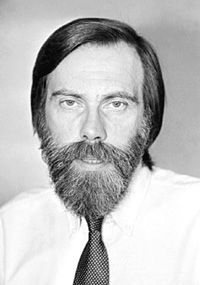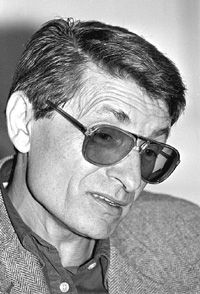Many are now suggesting a dialogue between the authorities and the opposition as a realistic way to ride out the political crisis.
The Day decided to ask experts what they think should be the preliminary condition for this kind of a dialogue, what commitments the authorities and the opposition should undertake to make this dialogue possible, and what results (legal, political, etc.) it could bring.
Mykhailo POHREBYNSKY, political scientist; director, Kyiv Center for Political Research and Conflict Studies:
“We are now in a situation when preconditions should be identified. A dialogue is sometimes possible without any conditions. But here, I think, there should be some conditions. As for the authorities, they should admit their mistakes and punish those who have committed them. What I have in mind here is the inadequate investigation, disrespectful attitude toward the disappeared journalist’s family, and unprofessional discharge of their duties by those dealing with the Gongadze case. Steps should be taken for a thorough, open, and honest investigation. I do not think resignation should be a precondition for government and the opposition to have a dialogue or to meet each other halfway. But the authorities’ signal that they are ready to do so and are considering the ways of doing so might be a real condition for such a dialogue.
As to the opposition, it is so variegated that it is not clear who one can talk to. I think the authorities should not meet UNA-UNSO or some radical Communists. They should keep clear of radicals. Moreover, the opposition should try to abide by the law.
“A dialogue like this could result in official decisions, such as the commitment of the president and the pro-presidential parliamentary factions to write the needed laws, for instance, the laws on parliamentary investigative commissions, on the opposition, on the Cabinet of Ministers, and so forth.”
Yevhen HOLOVAKHA, chief research associate, Institute of Sociology, National Academy of Sciences of Ukraine:
“I think we should distinguish between two objects of the dialogue between the authorities and the opposition (for, as far as I see it, the question is about a dialogue between the executive and the opposition, because the latter is part of the legislative branch and the two branches of government carry on a continuous dialogue). The first quite obvious object is the situation concerning the disappearance of journalist Gongadze and all that this implies. I believe in this case a full-fledged dialogue (between governmental and non-governmental organizations) could be based on an unambiguous juridical appraisal of this affair. So it seems to me that a dialogue between the authorities and the opposition will be fruitless at the current stage (without a final juridical assessment of the situation). I think the solution of this problem should be referred above all to the judicial bodies, and all the public can do (if it is interested in an unbiased solution) is search for the ways of public oversight of this juridical procedure, as is done throughout the civilized world.
Another subject, which goes beyond the limits of this specific situation, is defining how the executive branch should wield its authority in this country (according to what principles, laws, standards, ethic and political rules). This is an entirely different question: in this case the authorities and the opposition should be conducting a dialogue right now, as is done in all democratic states. I mean elections. As I see it, all this should be settled during election campaigns, when specific political parties and associations take specific political stands. The authorities should finally decide which political forces are their allies, and this can obviously form the basis for a civilized dialogue between the followers and opponents of the executive power as part of an election campaign. In essence, an election would show who the majority of our people will select as the most suitable force, a force capable of giving fresh impetus to the normal civilized development of society. I think there are quite realistic conditions for this even now, with the Verkhovna Rada election campaign a few months away. I do not see, for example, any prospects for such a dialogue with the forces organizing the demonstrations, because they are united by principles absolutely unclear to me (I see no serious grounds for these forces to unite, for they put up only one anti-presidential slogan, obviously not constructive for the executive). A dialogue is only possible on the basis of realistic programs that unite people within a certain political association. Otherwise it will all be reduced to slogans. For example, a tent town is perhaps a radical, but not the most constructive, way to solve such problems. We must set up non-governmental organizations with a real (including juridical) leverage.”








